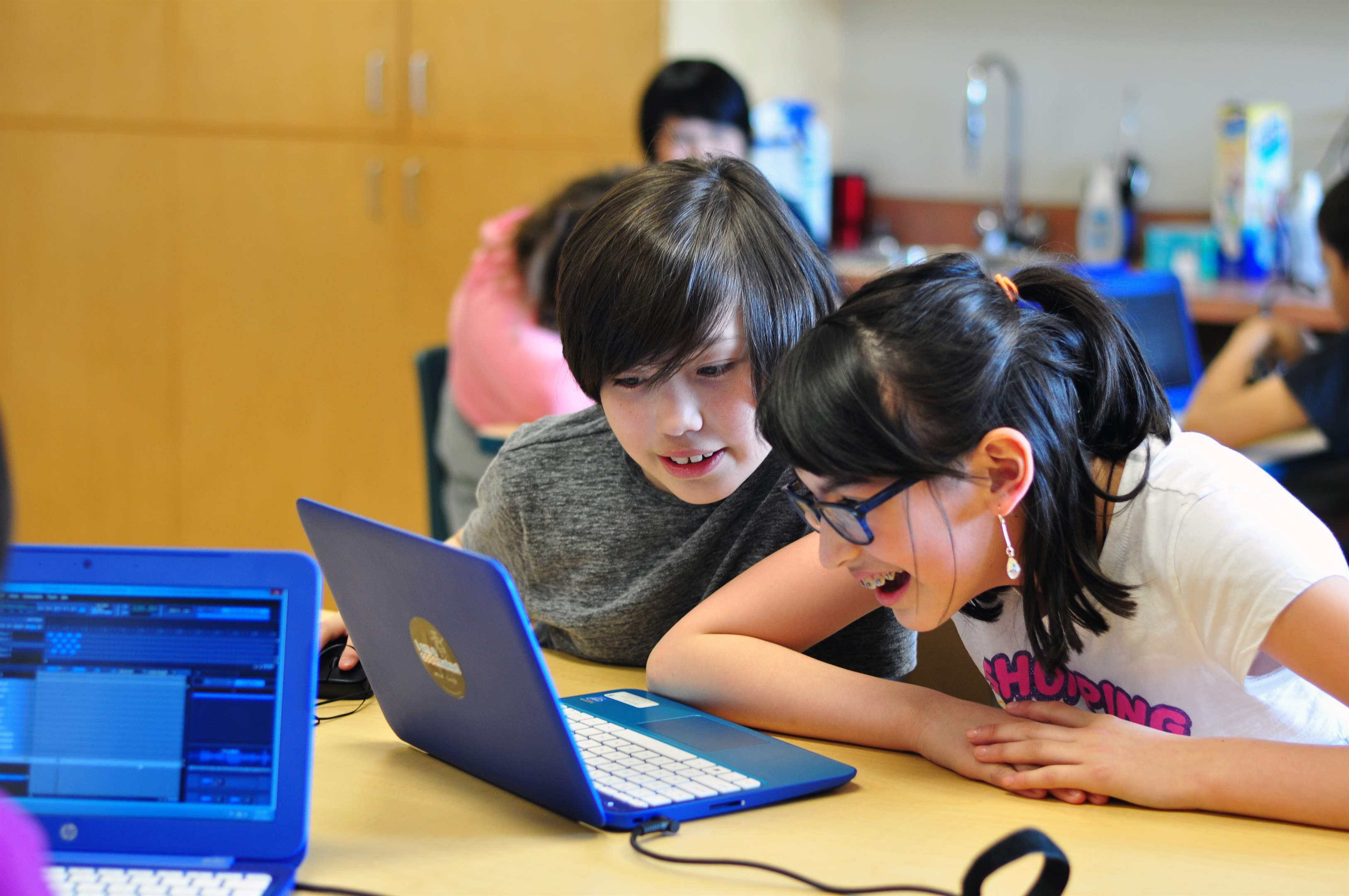5h. Coding and Digital Skills
Coding and Digital Skills
Recognizing the critical need for youth to develop digital skills starts with understanding that technology drives just about everything that defines modern society as we know it. Whether it’s the alarm app that wakes you with your favourite music, the coffee machine that makes your coffee or the traffic light that clears your path to school or work – behind every application, there is a person who coded the programs that make them work. 
It is important that youth not only know how to use these technologies but understand how they work and have the skills to produce new technologies in the future. This is digital literacy. It’s not just computer engineers and computer scientists who use digital skills in their work. Whether you are a writer, a graphic artist, a dancer or musician – digital skills will be essential and will drive future opportunities to innovate and disrupt in these fields. Digital literacy is a new literacy and all youth, regardless of background, geography, gender or socio-economic status, should have the opportunity to be empowered to create new technologies to make their world a better place.
In February 2018, Actua released the results of a first-of-its-kind survey, Coding the Future: What Canadian youth and their parents think about coding, which assessed the confidence and attitudes of Canadian kids and parents toward coding, and jobs of the future.
Among the most revealing findings of the survey:
- Over 92 per cent of students and parents believe that knowing how to use digital technology will be very or extremely important to their future careers.
- More than 50 per cent of youth want more opportunities to learn to code but only 1/3rd said they have access to that kind of opportunity.
- Over 50 per cent of boys were very or extremely interested in careers involving coding or programming, but only 27 percent of girls expressed the same interest.
- Boys also express more confidence in their ability to code (41%) vs girls at only 28 per cent.
- Boys are twice as likely as girls to participate in a coding program outside of schools.
- There remains a socio-economic divide. Parents with a higher education and income regarded digital technologies and careers as more important than those with a lower education and income level.
Actua’s national digital skills program is supported by the world’s top companies in technology including Google, Microsoft, GE, Lockheed Martin, Shopify, as well as the Government of Canada’s CanCode program. In the 4 minute video below, you will find one of our industry partners, Karen Chan (TD) discussing the critical role of digital skills in her job, and in all future jobs.
Check out this video on some of the ways Digital Skills are critical for future careers of all kinds.
Actua's AI Project
One of the most difficult and yet most pervasive areas of digital technologies is artificial intelligence. Artificial intelligence (AI) is everywhere, and is only getting more prevalent as technology transforms the ways in which we work and live. From intelligent assistants to recommended products, smart playlists, and facial recognition, AI transcends all industries, and has a multitude of applications and implications. In order for youth to be prepared for the jobs of today and tomorrow, they need foundational digital skills and literacy, which now includes understanding and applying AI. In early 2019, Actua set out to address this need in engaging youth in AI.
With support from Google.org and the Canadian Internet Registration Authority (CIRA), we created Actua’s AI Project, designed to contribute to the development of a strong AI training ecosystem in Canada. Our goal is to have AI widely taught in schools, broadly understood by society, acknowledged as an important part of Canada’s economy, and something in which Canadians have deep pride. Actua’s AI Education Handbook is intended to support educators with background information on AI, a curriculum-aligned framework, and ideas for classroom implementation.
Use this link below to access Actua’s AI Handbook filled with helpful content to support you in delivering great digital literacy based learning in your camps and clubs as well!
Check out this resource: Actua's AI Handbook
Actua 101
- Getting Started
- 1. Introduction
- 2. About Actua
- 3. Network Members
- 4. Impact
- 5. National Programs
- 5a. Indigenous Youth in STEM
- 5b. Go Where Kids Are
- 5c. National Girls Program
- 5d. National Black Youth in STEM Program
- 5e. Teacher Training
- 5f. Actua in the North
- 5g. National Mentorship Program
- 5h. Coding and Digital Skills
- 6. Instructors
- 7. Reflection and Next Steps
- Survey
Viewed 4,772 times